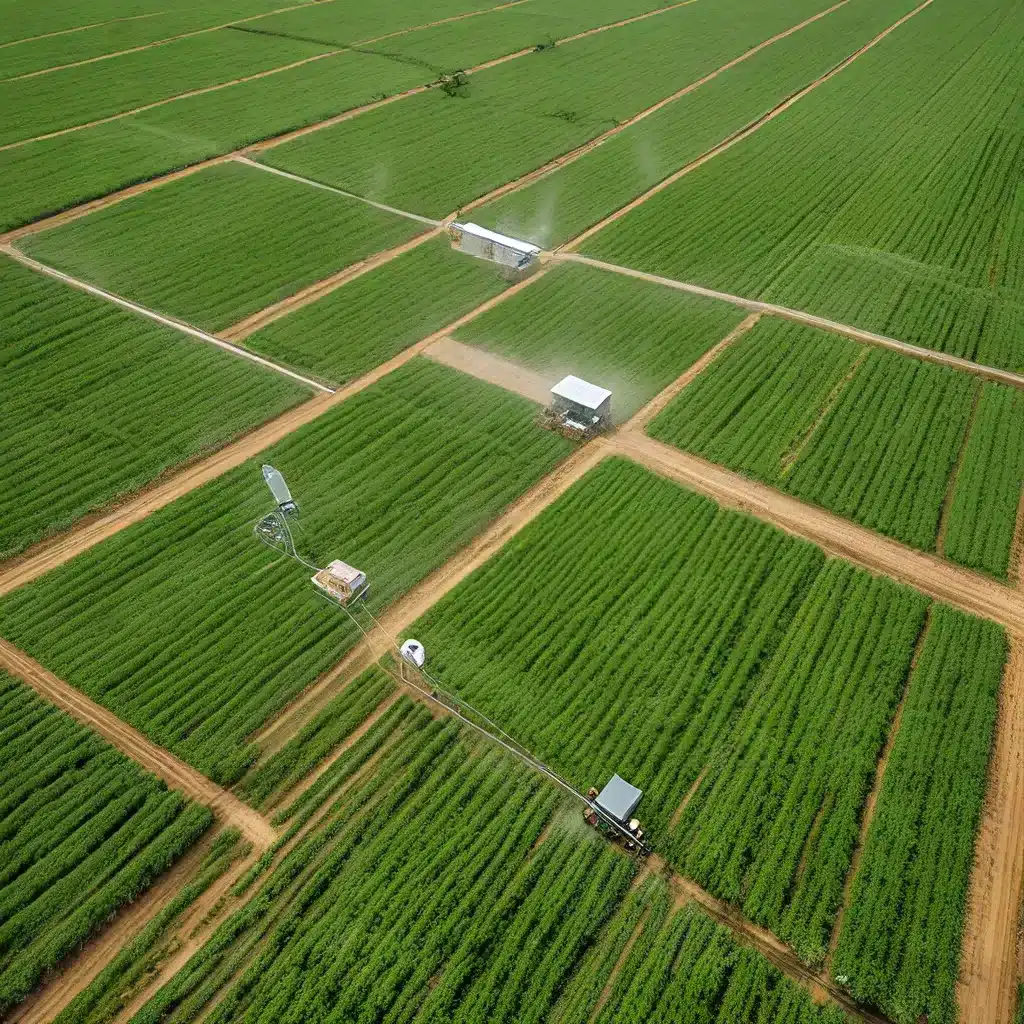
The Rise of Sensor Networks in Precision Agriculture
Sensor networks have become an integral part of the modern agricultural landscape, revolutionizing the way farmers and agronomists approach crop management and optimization. At the forefront of this transformation are RFID (Radio Frequency Identification) and NFC (Near Field Communication) technologies, which have emerged as powerful tools for enhancing precision agriculture.
The integration of sensor networks in precision agriculture allows for the collection and analysis of vast amounts of data, enabling farmers to make more informed decisions. From monitoring soil moisture and nutrient levels to tracking livestock and optimizing irrigation, sensor networks have become indispensable in the pursuit of sustainable and efficient food production.
Empowering Precision Agriculture with RFID and NFC
RFID technology has been a game-changer in precision agriculture, enabling the tracking and identification of various assets, including livestock, machinery, and agricultural products. By embedding RFID tags in these elements, farmers can monitor their location, movement, and status in real-time, helping to improve inventory management, asset utilization, and supply chain traceability.
NFC, on the other hand, has found its niche in precision agriculture by facilitating seamless data exchange and communication between devices. This technology allows farmers to quickly and easily share information, such as field conditions, weather forecasts, and crop yields, with their peers, agronomists, and supply chain partners, fostering collaboration and knowledge-sharing.
Sensor Networks for Precision Agriculture: Applications and Advantages
The application of sensor networks in precision agriculture extends far beyond basic monitoring and tracking. Sophisticated sensor arrays can be deployed to collect granular data on soil composition, moisture levels, and nutrient availability, allowing farmers to precisely target their fertilizer and irrigation applications, reducing waste and improving crop yields.
Environmental monitoring is another key application of sensor networks in precision agriculture. Sensor nodes strategically placed throughout a farm can continuously gather data on temperature, humidity, wind speed, and precipitation, enabling farmers to make more informed decisions about planting, harvesting, and pest management.
Livestock tracking and monitoring is another area where sensor networks excel. RFID tags attached to animals can provide real-time data on their location, health, and behavior, allowing farmers to identify and address issues early, improving animal welfare and production efficiency.
Overcoming Challenges in Sensor Network Design
While the benefits of sensor networks in precision agriculture are well-documented, the design and implementation of these systems are not without their challenges. Power management, data security, and network reliability are some of the key concerns that must be addressed.
Energy-efficient sensor network design is crucial in precision agriculture, where sensor nodes may be deployed in remote or hard-to-access areas. Strategies such as low-power communication protocols, energy-harvesting techniques, and intelligent duty-cycling can help extend the lifespan of sensor nodes and reduce maintenance costs.
Data security is another critical consideration, as sensor networks in precision agriculture may handle sensitive information, such as crop yields, livestock health records, and financial data. Implementing robust encryption, authentication, and access control measures is essential to protect against unauthorized access and data breaches.
Network reliability is also a key concern, as sensor networks in agricultural settings may face environmental challenges, such as interference, signal attenuation, and physical damage. Redundant network topologies, self-healing capabilities, and adaptive communication protocols can help ensure the continuous and reliable operation of sensor networks in precision agriculture.
Unlocking the Future of Precision Agriculture with Sensor Networks
As the global population continues to grow and the demand for food increases, the role of sensor networks in precision agriculture will become increasingly vital. By leveraging the power of RFID, NFC, and other sensor technologies, farmers and agronomists can optimize resource utilization, enhance productivity, and improve the overall sustainability of agricultural practices.
The future of precision agriculture lies in the seamless integration of sensor networks, data analytics, and decision-support systems. As sensor network technology continues to evolve, we can expect to see even more sophisticated and intuitive solutions that will revolutionize the way we approach food production and resource management.